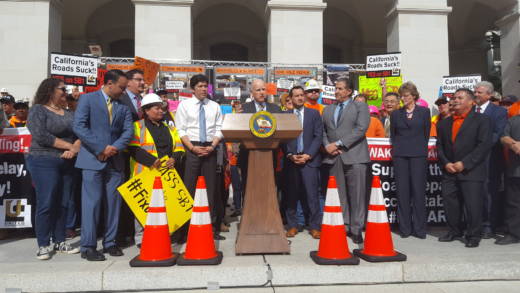The stage is set for a razor close vote at the California Capitol on Thursday on a $52.4 billion transportation funding deal: Since Senate Bill 1 would raise taxes it requires a two-thirds vote to pass.
Democrats hold a two-thirds majority in the state Senate and Assembly and they’ll need nearly all of those votes to get their transportation bill through both houses.
At a rally on Wednesday, Gov. Jerry Brown joined with Senate and Assembly leaders to try to push the measure across the finish line. He says while there are a lot of issues in Sacramento that lawmakers can put off, transportation infrastructure isn’t one of them.
“When it comes to fixing roads that are falling apart, or that bridge down there in Monterey County that no longer can support a car, you gotta do it now," Brown said. "And if you don’t do it, it gets more expensive next year, and the year after.”
The cost of providing emergency fixes to the state highway system has been on an upward trend for the last few years. The steady deluge of storms this winter has caused wet weather damages to surge to roughly $866 million in the first three months of 2017, CALmatters reports, making it the most expensive year for the state road system in at least two decades.
